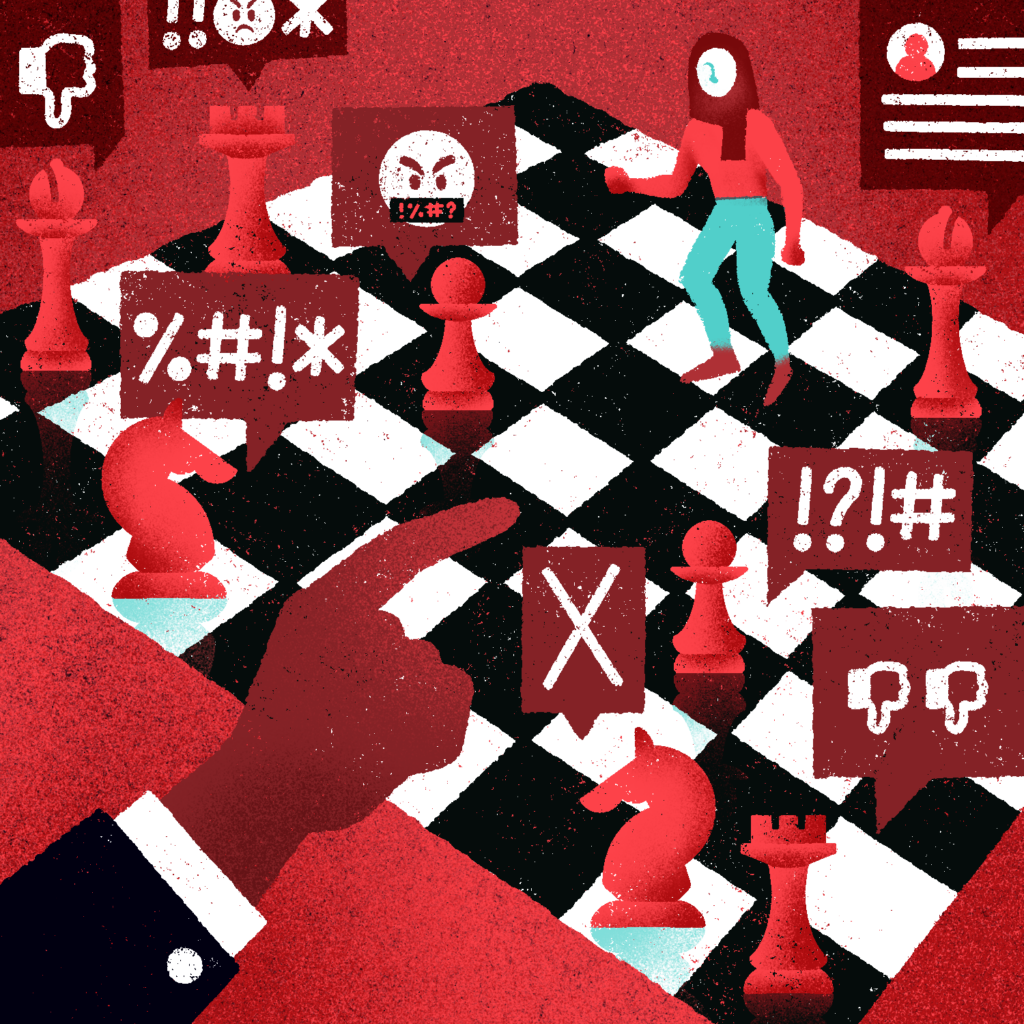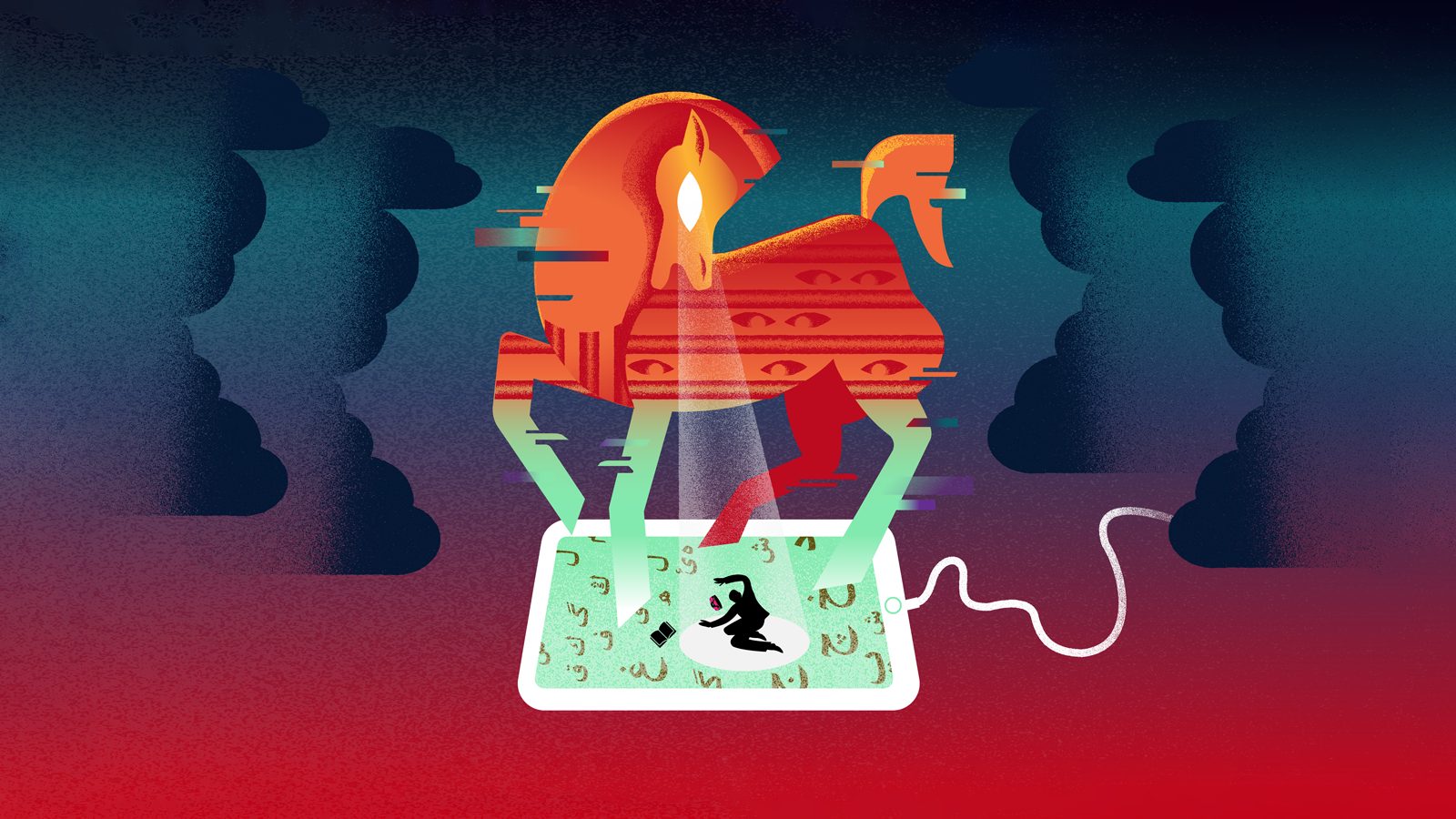
Arwa
An Activist From Yemen
Arwa – who spent over a decade in public activism work in Yemen – played a crucial role in the 2011 Yemeni uprising. As a woman activist, her public visibility drew relentless attacks and criticism. The pressure grew exhausting, and, in 2015, she sought refuge in the E.U., hoping for a safer environment to continue her work in a more discreet way.
This country spotlight is part of the Citizen Lab’s research on digital transnational repression. Digital transnational repression arises when governments use digital technologies to surveil, intimidate and silence exiled dissidents and diaspora communities. It is part of the broader practice of transnational repression, which refers to states using methods such as harassment, coercion-by-proxy, kidnapping, and assassination attempts, in order to control dissent outside their territories. Further research by the Citizen Lab on this issue – including research reports, country spotlights, stories of digital transnational repression, video interviews, and academic articles – is available here .
Arwa – who spent over a decade in public activism work in Yemen – played a crucial role in the 2011 Yemeni uprising. She attended protests, spoke at conferences, and participated in women’s marches, often using digital platforms to reach a broader audience. Digital technology was central to her activism, enabling her to communicate with fellow activists through encrypted apps like WhatsApp and to share her views publicly on platforms such as Facebook, Twitter, and Instagram. Yet, as a woman activist, her public visibility drew relentless attacks and criticism. “I really didn’t like being a public figure,” she reflects. “It’s not for me.” The pressure grew exhausting, and, in 2015, she sought refuge in the E.U., hoping for a safer environment to continue her work in a more discreet way.
Despite facing political repression and gender-based threats both online and offline, Arwa refused to abandon her activism. Instead, she adapted her approach, shifting her focus toward broader human rights and democracy through artistic advocacy. “What I want is for people to really understand and connect on an emotional, personal level,” she explains, describing how art allows her to challenge authoritarian and patriarchal systems without risking the severe reprisals that come with public activism. Yet, even her creative efforts bring risk. Publishing her artwork under a pseudonym to protect her identity, she faces ongoing threats that leave her in fear for her safety — even in the E.U.
Arwa’s belief that her attackers are connected to her country of origin’s government is grounded in painful experiences. She has faced repeated digital threats including the hacking of her computer and the leak of her wedding photos, intended to shame her as a “hypocrite” for not adhering to traditional expectations. “I still get emails, messages, DMs,” she says, revealing the ongoing psychological burden of these intrusions. The leaked photos, where she was not wearing a headscarf, provoked accusations and violent comments, some of which threatened rape. “It’s a real fear,” she shares, understanding the personal and familial consequences should these threats ever get carried out. Her extended family, distressed by the public shaming, has urged her to withdraw from activism to “protect the family’s honour.”
The persistence of misinformation, perpetuated even by credible sources like Arabic Wikipedia, has compounded the emotional toll. This circulation of false narratives serves not only to undermine Arwa’s reputation but to isolate her from her community. In response to these attacks, she has developed a heightened sense of caution, exercising self-censorship and second-guessing her choices. “I’m more careful about who I socialize with,” she explains, fearing that someone might be working for the regime and seeking to infiltrate her social circles. Over time, the vigilance and isolation have diminished her confidence. “It’s just sucking my energy,” she admits, describing the toll of maintaining her safety.
Even within Europe, Arwa’s concerns persist. She is wary of harassment from Yemeni agents and continues to face a flood of messages from online trolls. Her frustration is compounded by the lack of support from institutions while in exile; organizations she has collaborated with – including those advocating women’s rights – have offered little in terms of digital security or protective measures. Despite their awareness of her situation, Arwa feels these institutions have “zero concern for us and our safety.”
Looking forward, Arwa envisions a platform where women facing similar forms of digital harassment can confront their perpetrators in a protected space. “They need to understand all the harm they’ve done,” she says, “not just [on] one person, but an entire society.” Resilient and determined, Arwa continues to navigate the delicate balance between her advocacy and the high personal costs it exacts.

